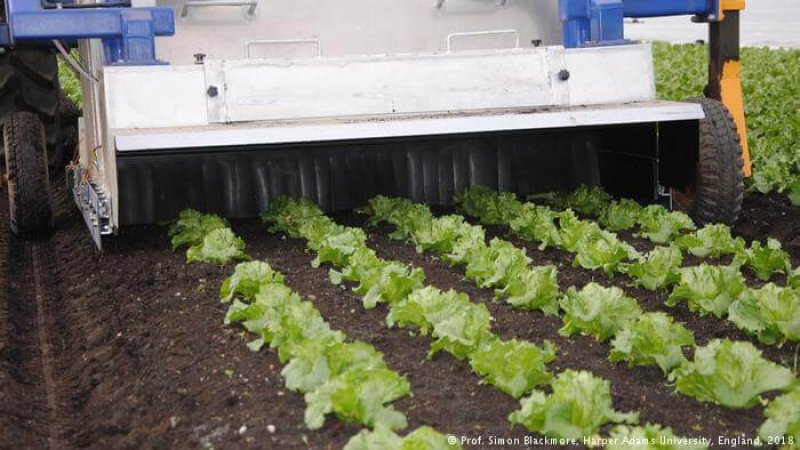Professor Simon Blackmore, head of robotic agriculture at the UK’s National Centre for Precision Farming at Harper Adams University in England, says that increasingly sensitive and precise sensors and instruments are being developed that can measure the “complex nature of the growing environment” on every square meter of farmland — the soil and water conditions; the presence of pests and diseases; the location of weeds, and the size of crop plants.
In addition to measuring the state of a crop, robots will be able to actively improve growing conditions, not least by getting rid of weeds.
“We’re developing a whole range of smart machines now that potentially might be able to replace the tractor and the combine harvester,” Blackmore said. “And we’re coming up with systems that will allow us to replace herbicides… One project I’m developing is called laser weeding.”
…
It will take quite a few years for mass-produced agricultural robots to become available and widely deployed in agriculture. And it’s not yet clear whether such robots will eventually make herbicides like glyphosate completely unnecessary. Perhaps not entirely.
But if Blackmore is right, robots could, at a minimum, vastly reduce the total amount of poison farmers need to apply in order to grow thriving crops in weed-free fields.
Read full, original post: Could agricultural robots replace glyphosate?































